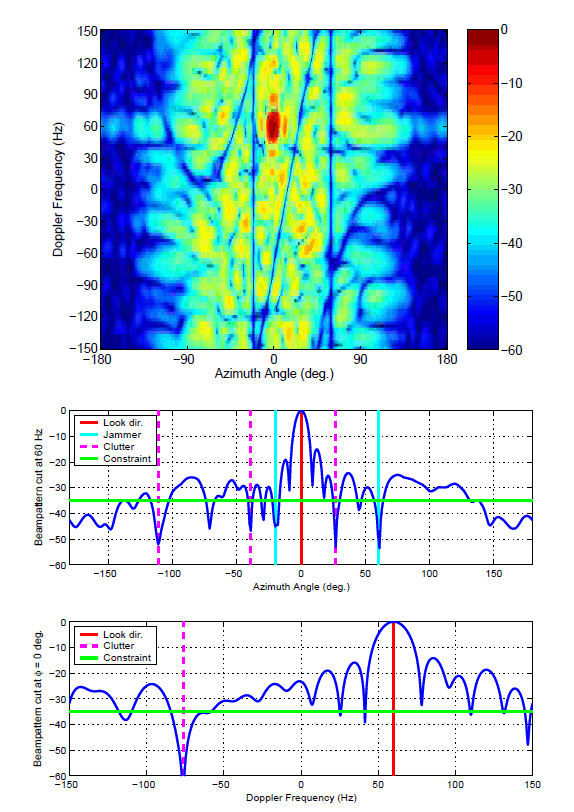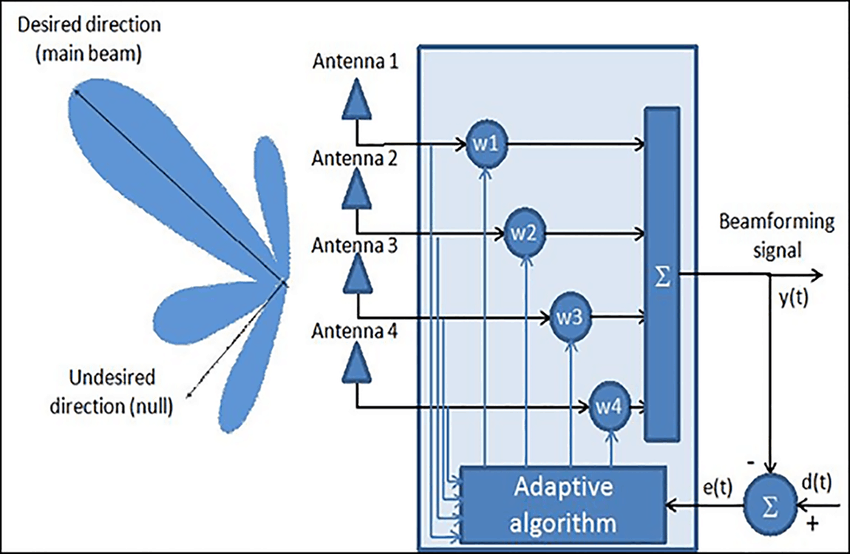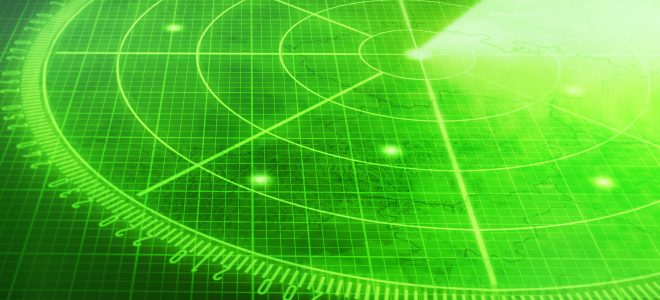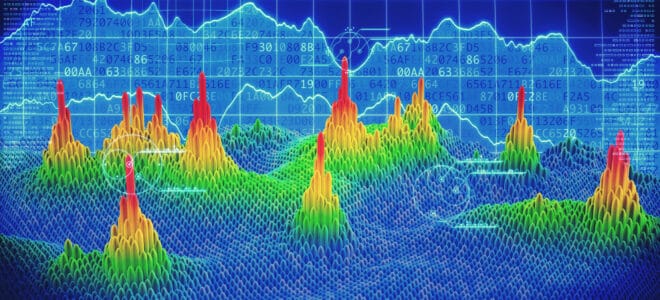Conventional and Adaptive Signal Processing
- Explore:
- Noise Filtering
- Conventional vs. Adaptive
Metron's signal processing tools help our clients combine sensor readings to filter out noise to focus on what's important.
Join Our Team
Metron has a long history of developing conventional and adaptive signal processing systems for sonar and radar applications that incorporate technologies including digital filtering, beamforming, Doppler processing, and space-time adaptive processing.
Signal processing, or digital filtering, weights and combines sampled sensor data in order to enhance components related to a signal of interest and reduce components related to unwanted interference.
Filtering out the Noise
Data is received from sensors that sample the environment in space and/or time. The signal processor, or digital filter, weights and sums the sensor data to enhance certain aspects of the signal (related to a target of interest) and reduce or eliminate other aspects (related to unwanted interference). For a ship performing a SONAR scan, this might be filtering out reflections from the surface and seafloor as well as other background noise to focus in on a possible submarine contact.

Conventional vs. Adaptive Signal Processing
In conventional processing, the weights are designed using prior knowledge about the desired and undesired signals. In adaptive processing, the environment is assumed to be changing over time and the received data is used to learn environmental characteristics and adapt the filtering weights to the environmental conditions.


Metron Careers
Data Science Career Opportunities
Metron hires data scientists with experience researching novel approaches that advance the state of the art. Our data scientists apply these innovations to new problem domains working alongside subject matter experts. They are familiar with machine learning tools and pipelines and work with software engineers to integrate solutions into client systems.



